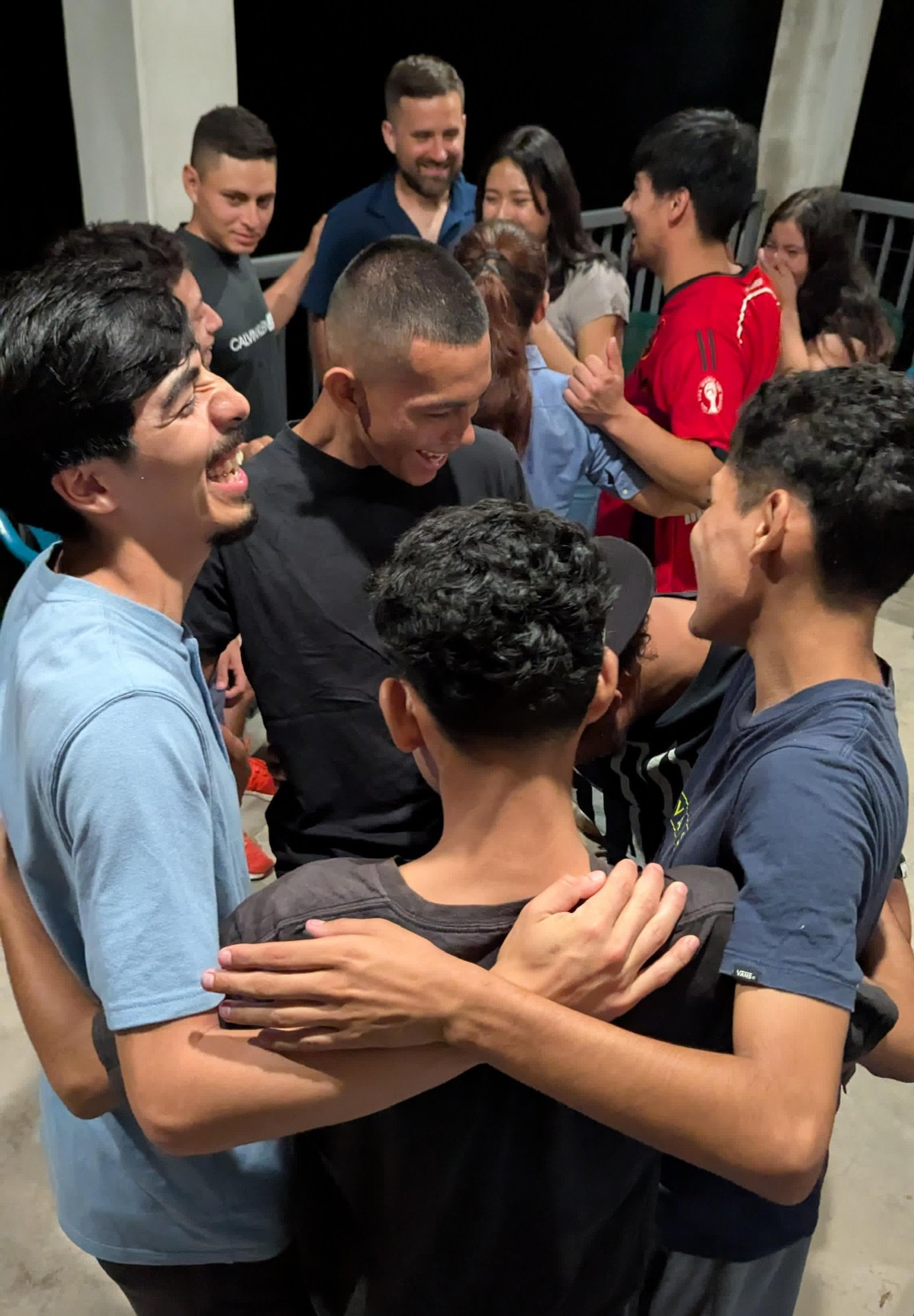From CASE to the Campo: Applying Youth Programming Strategies in El Salvador
Professor Benjamin Reese (far back center) is a gifted teacher, but also spends his time investing in youth in Nashville and also regularly in El Salvador. He is on mission abroad this month with two students, and is facilitating activities as he does.
Professor Benjamin Reese
I’ve had the great fortune of working for CASE for many years. It’s taught me a lot about youth programming, and one of the important lessons it’s taught me is how to engage youth that are often tired or discouraged by school. When youth come into an afterschool program, they are mentally exhausted, both from school work and navigating the complex social world of middle school. Some students are also deeply discouraged by the school system for a number of reasons. This all adds up to a big problem: The students do not want to learn anything. I’ve seen it happen. If they get a whiff that something is going to be a lesson, they immediately disengage and begin the complex ritual of complaint that includes eye rolls, disgruntled sighs, and sudden urges to use the bathroom.
As a youth worker, you have to develop a bag of tricks to overcome this obstacle. One of the best tricks is so-called activity learning. This is where you slyly incorporate a lesson into an activity that engages youth but also helps them learn something important in the process.
Every month in El Salvador our campus hosts a big youth event that includes dinner, games, bible lessons, and worship. This past week, our team here in El Salvador got to participate in the planning process. As we discussed how the lesson could be taught, there was a lot of discussion about how resistant some of the youth were to learning. The story was familiar. They had gone through a school system that didn’t necessarily inspire a love of learning.
Because the problem was familiar, I was able to offer some guidance from the hard-won lessons of doing CASE over the years. We worked together to ensure that the activities of the night were not just fun but also helpful in communicating the Bible lesson. We chose several different activities, some taken directly from years of doing CASE, that would emphasize the importance of the decisions we make and the development of wisdom to make good decisions.
Institue students Jacob (in red) and Mark (in light blue) Olivea alongside Salvadoran youth.
It turns out that Salvadoran youth, like youth everywhere, are very competitive. The egg drop and tower-creation activity successfully engaged everyone, and the leaders of the event did a good job tying the activity to the Bible lesson. In the reflection time at the end of the night, the youth also mentioned lessons they had learned during the activities.
We believe that if we are obedient to God, he prepares us for the good work he has planned for us (Eph. 2:10). I’ve certainly experienced this in my own life. Working with disengaged youth has been a challenge, but it’s taught such important lessons. That’s how the life of faith goes. Challenging situations in one moment equips us for other challenges down the road. That’s why James 1:2-4 reminds us to take on challenges with joy, knowing that the end result, if we seek God, will be maturation and wisdom, which just happens to be the very Bible lesson we got to teach Salvadoran youth through the kinds of engaging activities that I learned working with CASE.


